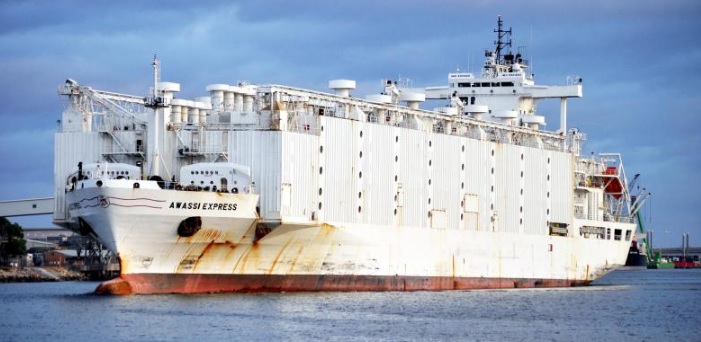Australia’s Department of Agriculture and Water Resources suspended the live export licence of the company implicated in the death of 2,400 sheep from heat stress onboard the livestock carrier ‘Awassi Express’ in August 2017.
The licence will remain suspended pending a full review of the company’s response to a show cause notice.
In its statement, the Department of Agriculture and Water Resources explained:
The laws that regulate the export of livestock include strict requirements to ensure the health and welfare of animals. It is the responsibility of each exporter to ensure it meets those obligations. The department takes those responsibilities very seriously.
In August 2017 footage emerged showing 2,400 sheep dying as the experienced heat stress onboard the livestock carrier ‘Awassi Express’. The conditions onboard the ship were far from ideal, as many of the animals were injured and sick.
[smlsubform prepend=”GET THE SAFETY4SEA IN YOUR INBOX!” showname=false emailtxt=”” emailholder=”Enter your email address” showsubmit=true submittxt=”Submit” jsthanks=false thankyou=”Thank you for subscribing to our mailing list”]
During June, Australia’s Department of Agriculture informed that it would proceed with a criminal investigation into the incident, and especially for the company responsible for the death of the 2,400 sheep.
The investigation is currently under way, and the department did not provide any more information. It noted that further information will be released following a full review.
In a bid to stem public anger after the footage, Australia announced it will require ships carrying live cattle and sheep exports to have an independent observer to ensure welfare standards. Moreover, the government will reduce the number of sheep a vessel can carry during the summer months by 28%.
The country will also introduce new legislation to penalise any exporter that violates these standards. Under the proposal, a director of a company could face 10 years prison or A$2.1 million fine if the welfare standards are not met.






























































